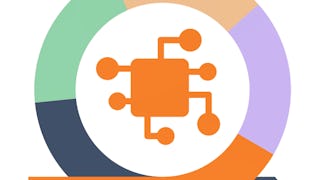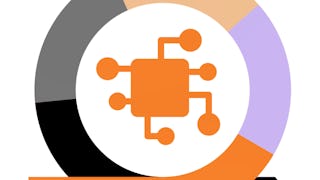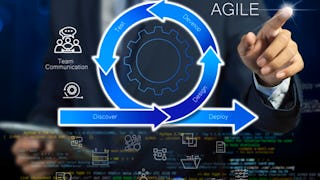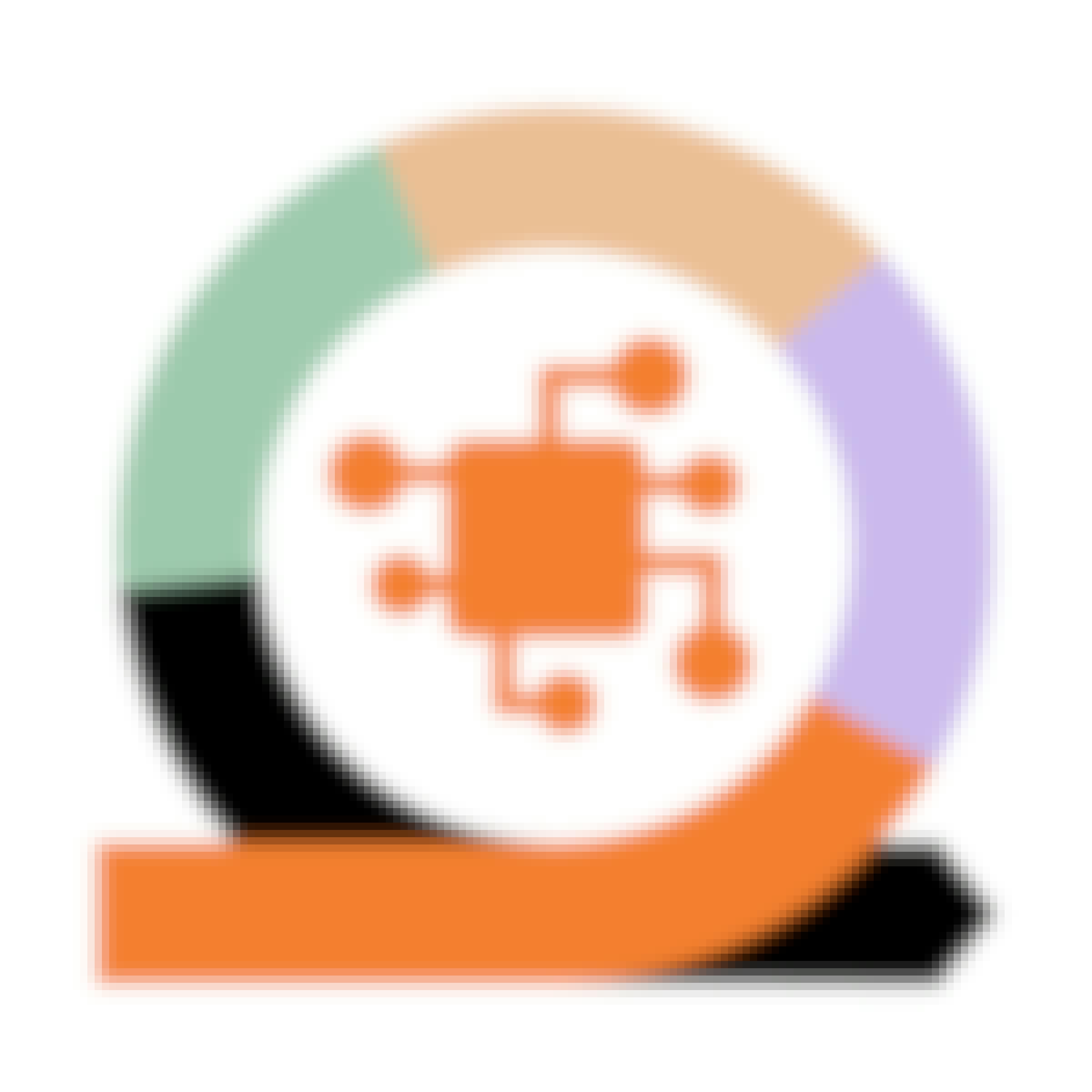Waterfall Methodology
Filter by
SubjectRequired *
LanguageRequired *
The language used throughout the course, in both instruction and assessments.
Learning ProductRequired *
LevelRequired *
DurationRequired *
SubtitlesRequired *
EducatorRequired *
Results for "waterfall methodology"
 Status: NewNewStatus: Free TrialFree Trial
Status: NewNewStatus: Free TrialFree TrialSkills you'll gain: Agile Project Management, Agile Methodology, Scaled Agile Framework, Kanban Principles, Waterfall Methodology, Lean Methodologies
Beginner · Course · 1 - 4 Weeks
 Status: NewNewStatus: Free TrialFree TrialB
Status: NewNewStatus: Free TrialFree TrialBBoard Infinity
Skills you'll gain: Test Automation, Performance Testing, Software Quality Assurance, Security Testing, Regression Testing, User Acceptance Testing (UAT), Maintainability, Development Testing, Continuous Delivery, Code Review, Scalability, Automation, DevOps, Software Design, Technical Communication, Test Execution Engine, Application Programming Interface (API), Integration Testing, Waterfall Methodology, Agile Methodology
Beginner · Specialization · 3 - 6 Months
 Status: NewNewStatus: Free TrialFree TrialG
Status: NewNewStatus: Free TrialFree TrialGGoogle
Skills you'll gain: Scrum (Software Development), Agile Project Management, Backlogs, Sprint Planning, Agile Methodology, User Story, Data-Driven Decision-Making, Project Estimation, Scaled Agile Framework, Agile Product Development, Sprint Retrospectives, Waterfall Methodology, Lean Methodologies, Project Performance, Kanban Principles, Product Management, Project Management, Prioritization, Estimation, Problem Solving
Beginner · Specialization · 1 - 3 Months
 Status: NewNewStatus: Free TrialFree TrialU
Status: NewNewStatus: Free TrialFree TrialUUniversity of Colorado System
Skills you'll gain: Systems Engineering, Verification And Validation, Team Management, Systems Architecture, Requirements Analysis, Requirements Elicitation, Scrum (Software Development), Systems Development Life Cycle, Teamwork, Configuration Management, Team Building, Agile Methodology, Scaled Agile Framework, Systems Development, Team Motivation, Organizational Leadership, Engineering Management, Risk Management, Waterfall Methodology, Leadership and Management
Intermediate · Specialization · 3 - 6 Months
 Status: NewNewStatus: Free TrialFree TrialU
Status: NewNewStatus: Free TrialFree TrialUUniversity of Colorado System
Skills you'll gain: Scrum (Software Development), Agile Methodology, Systems Engineering, Risk Management, Lean Methodologies, Software Development Methodologies, Scalability, Sprint Retrospectives, Agile Project Management, Systems Development Life Cycle, Team Management, Waterfall Methodology, Sprint Planning, Backlogs
Intermediate · Course · 1 - 4 Weeks
 Status: NewNewStatus: Free TrialFree Trial
Status: NewNewStatus: Free TrialFree TrialSkills you'll gain: Scaled Agile Framework, Agile Project Management, Agile Software Development, Agile Methodology, Scrum (Software Development), Sprint Planning, Kanban Principles, Lean Methodologies, Organizational Change, Sprint Retrospectives, Waterfall Methodology, Process Mapping, Continuous Improvement Process, Prioritization, Requirements Analysis
Beginner · Course · 1 - 4 Weeks
What brings you to Coursera today?
 Status: NewNewStatus: Free TrialFree TrialU
Status: NewNewStatus: Free TrialFree TrialUUniversity of Colorado System
Skills you'll gain: Systems Engineering, Requirements Analysis, Requirements Elicitation, Systems Development Life Cycle, Configuration Management, Engineering Management, Waterfall Methodology, Systems Analysis, Project Management, Risk Management, Systems Architecture, System Requirements, Functional Design
Intermediate · Course · 1 - 4 Weeks
 Status: NewNewStatus: Free TrialFree TrialB
Status: NewNewStatus: Free TrialFree TrialBBoard Infinity
Skills you'll gain: Software Quality Assurance, Software Development Life Cycle, Quality Assurance, Software Documentation, Functional Testing, Software Testing, Acceptance Testing, User Acceptance Testing (UAT), Test Case, Maintainability, Verification And Validation, Unit Testing, Software Design, System Testing, Integration Testing, Waterfall Methodology, Agile Methodology, Regression Testing
Beginner · Course · 1 - 4 Weeks
 Status: NewNewStatus: Free TrialFree TrialU
Status: NewNewStatus: Free TrialFree TrialUUniversity of Colorado System
Skills you'll gain: Scaled Agile Framework, Systems Engineering, Scrum (Software Development), Agile Methodology, Agile Project Management, Kanban Principles, Business Leadership, Process Driven Development, Unified Modeling Language, Backlogs, Scalability, Engineering Management, Organizational Change, Waterfall Methodology
Intermediate · Course · 1 - 4 Weeks
 Status: Free TrialFree Trial
Status: Free TrialFree TrialSkills you'll gain: Project Management Life Cycle, Change Management, Organizational Structure, Project Management, Project Coordination, Organizational Change, Agile Methodology, Project Planning, Waterfall Methodology, Interpersonal Communications, Strategic Thinking
4.9·Rating, 4.9 out of 5 stars98K reviewsBeginner · Course · 1 - 4 Weeks
 Status: Free TrialFree TrialU
Status: Free TrialFree TrialUUniversity of Illinois Urbana-Champaign
Skills you'll gain: Project Closure, Project Implementation, Waterfall Methodology, Earned Value Management, Sprint Retrospectives, Project Controls, Agile Project Management, Project Management, Scope Management, Agile Methodology, Sprint Planning, Team Leadership, Project Schedules, Project Planning, Cost Management, Timelines, Scheduling, Stakeholder Communications, Resource Management
Build toward a degree
4.8·Rating, 4.8 out of 5 stars60 reviewsBeginner · Course · 1 - 3 Months
 Status: Free TrialFree TrialP
Status: Free TrialFree TrialPPontificia Universidad Católica del Perú
Skills you'll gain: Software Development Life Cycle, Unified Modeling Language, Software Design, Software Engineering, Systems Development, Software Development, Waterfall Methodology, Requirements Analysis
4.9·Rating, 4.9 out of 5 stars109 reviewsBeginner · Course · 1 - 4 Weeks